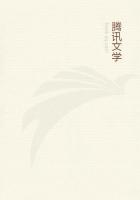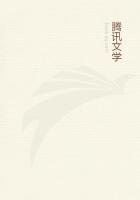The solution of the mystery given by the philosophy of the watermen is, that it is occasioned by the bursting of the rich mines of silver confined within the bosom of the mountains."
Of these strange noises there are many explanations, the most plausible being that they are caused by the explosion of the species of stone known as the geode, fragments of which are frequently found among the mountains.
The geode has a hollow cell within, lined with beautiful crystals of many colors.
Independence Day, 1805, was celebrated with becoming patriotism and cheerfulness by these far-wandering adventurers.
Their record says:--"An elk and a beaver are all that were killed to-day; the buffalo seem to have withdrawn from our neighborhood, though several of the men, who went to-day to visit the falls for the first time, mention that they are still abundant at that place.
We contrived, however, to spread not a very sumptuous but a comfortable table in honor of the day, and in the evening gave the men a drink of spirits, which was the last of our stock.
Some of them appeared sensible to the effects of even so small a quantity; and as is usual among them on all festivals, the fiddle was produced and a dance begun, which lasted till nine o'clock, when it was interrupted by a heavy shower of rain.
They continued their merriment, however, till a late hour."
Their bill-of-fare, according to Captain Lewis, was bacon, beans, suet dumplings, and buffalo meat, which, he says, "gave them no just cause to covet the sumptuous feasts of our countrymen on this day."
More than a year passed before they again saw and tasted spirits.
Great expectations were entertained of the boat that was built here on the iron frame brought all the way from Harper's Ferry, Virginia. The frame was covered with dressed skins of buffalo and elk, the seams being coated with a composition of powdered charcoal and beeswax, in default of tar or pitch.
This craft was well named the "Experiment," and a disappointing experiment it proved to be. Here is Captain Lewis' account of her failure:
"The boat having now become sufficiently dry, we gave her a coat of the composition, which after a proper interval was repeated, and the next morning, Tuesday, July 9th, she was launched into the water, and swam perfectly well. The seats were then fixed and the oars fitted; but after we had loaded her, as well as the canoes, and were on the point of setting out, a violent wind caused the waves to wet the baggage, so that we were forced to unload the boats. The wind continued high until evening, when to our great disappointment we discovered that nearly all the composition had separated from the skins and left the seams perfectly exposed; so that the boat now leaked very much.
To repair this misfortune without pitch is impossible, and as none of that article is to be procured, we therefore, however reluctantly, are obliged to abandon her, after having had so much labor in the construction.
We now saw that the section of the boat covered with buffalo-skins on which hair had been left answered better than the elk-skins, and leaked but little; while that part which was covered with hair about one-eighth of an inch retained the composition perfectly, and remained sound and dry. From this we perceived that had we employed buffalo instead of elk skins, not singed them so closely as we did, and carefully avoided cutting the leather in sewing, the boat would have been sufficient even with the present composition; or had we singed instead of shaving the elk-skins, we might have succeeded.
But we discovered our error too late; the buffalo had deserted us, and the travelling season was so fast advancing that we had no time to spare for experiments; therefore, finding that she could be no longer useful, she was sunk in the water, so as to soften the skins, and enable us the more easily to take her to pieces.
"It now became necessary to provide other means for transporting the baggage which we had intended to stow in her.
For this purpose we shall want two more canoes; but for many miles--from below the mouth of the Musselshell River to this place--we have not seen a single tree fit to be used in that way.
The hunters, however, who have hitherto been sent after timber, mention that there is a low ground on the opposite side of the river, about eight miles above us by land, and more than twice that distance by water, in which we may probably find trees large enough for our purposes. Captain Clark determined, therefore, to set out by land for that place with ten of the best workmen, who would be occupied in building the canoes till the rest of the party, after taking the boat to pieces, and ****** the necessary deposits, should transport the baggage, and join them with the other six canoes.
"He accordingly passed over to the opposite side of the river with his party next day, and proceeded on eight miles by land, the distance by water being twenty-three and three quarter miles.
Here he found two cottonwood trees; but, on cutting them down, one proved to be hollow, split at the top in falling, and both were much damaged at the bottom. He searched the neighborhood, but could find none which would suit better, and therefore was obliged to make use of those which he had felled, shortening them in order to avoid the cracks, and supplying the deficiency by ****** them as wide as possible.
They were equally at a loss for wood of which they might make handles for their axes, the eyes of which not being round, they were obliged to split the timber in such a manner that thirteen of the handles broke in the course of the day, though made of the best wood they could find for the purpose, which was the chokecherry.
"The rest of the party took the frame of the boat to pieces, deposited it in a cache or hole, with a draught of the country from Fort Mandan to this place, and also some other papers and small articles of less importance."















